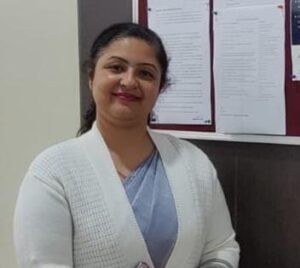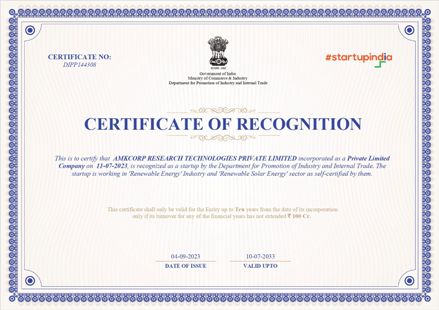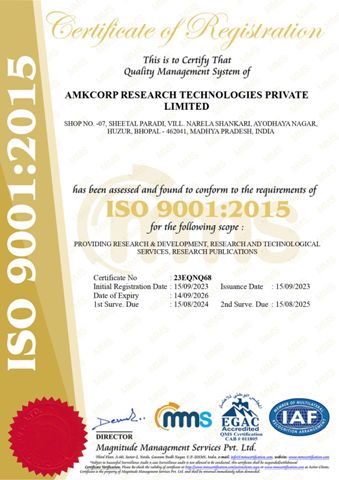
SUSTAINABLE FARMING REVOLUTION
AUTHOR(S) -
Dr. NIDHI SHARMA, Dr. SHWETA TANEJA, Dr. BHAWNA SURI
DOI – 10.61909/AMKEDTB022539
Genre/Subject – Environmental Engineering, Machine Learning, Agriculture
Book code – AMKEDTB022539 pgs: 220
ISBN(E) – 978-93-6556-643-7
ISBN(P) – 978-93-6556-943-8
Publication date – 04-02-2025
AUTHOR(S)

Dr. NIDHI SHARMA
Dr. Nidhi Sharma is Professor and Dean (Applied Science) in School of Engineering and Technology, Vivekananda Institute of Professional Studies-Technical Campus. She is an Academician, Researcher and Environmentalist. She has a total 22+ years of Academic and Research experience. She has multiple International, National publications in high impact factor research journals, patent and book chapters to her credit. Her field of interest includes environmental organic chemistry, electrochemistry, water treatment, sustainability, SDG and environment modelling using data analysis. She has Chaired and Convened International and National Conference, workshops and Conclave. She also received teachers excellence and research commendation awards. She is a member of various Environmental, Scientific and research associations of repute and also on the Editorial Board /Reviewer Board of International referred journals.

Dr. SHWETA TANEJA
Dr. Shweta Taneja is working as Associate Professor in Department of Computer Science & Engineering at Bhagwan Parshuram Institute of Technology, affiliated under GGSIPU, Delhi. She has received her Ph.D from Delhi Technological University in 2018. She received her MTech (Information Systems) degree from Netaji Subhas Institute of Technology, Delhi University in 2009 and B.Tech. (Computer Science) from MDU, Rohtak in 2003. Her areas of interest are Machine learning, Intelligent systems, Environment Sciences, IoT, Cloud computing, Fog computing, Data Mining, Text mining, Data Warehousing. She has published around 70 research papers in various journals and conferences, both national and international. She has a total experience of 21 years in teaching.

Dr. BHAWNA SURI
Dr. Bhawna Suri is working as an Associate Professor in Department of Computer Science & Engineering at Bhagwan Parshuram Institute of Technology, affiliated under GGSIPU, Delhi. She is an Academician and Researcher with a total of 20+ years. She has received her Ph.D from Jawaharlal Nehru University in 2012. Her areas of interest are Data Streams, Data Warehouse, IoT, Fog Computing, Machine Learning and Blockchain. She has Chaired and Co-Convened International conference.
ABOUT BOOK / ABSTRACT
Sustainable farming is at the heart of the future of agriculture, blending technological advancements with environmentally responsible practices. Sustainable Farming Revolution – The Power of Environmental Engineering, Machine Learning, and Smart Agricultural Practices is an insightful and comprehensive guide that explores how the fusion of modern technology, artificial intelligence, and ecological stewardship is reshaping the agricultural landscape. This book serves as a vital resource for farmers, researchers, policymakers, and anyone passionate about sustainable food production and environmental conservation.
The book begins with an introduction to sustainable farming, addressing the pressing need for a farming revolution in response to environmental challenges. It highlights the crucial role of technology, including environmental engineering and machine learning, in transforming agriculture into a more efficient and eco-friendly domain. From soil health management and water resource optimization to renewable energy integration and waste recycling, this book delves deep into the principles of environmental engineering applied to agriculture.
One of the most groundbreaking aspects of this book is its exploration of machine learning in agriculture. It provides a user-friendly introduction to AI and predictive analytics for non-experts while covering advanced applications such as disease and pest detection, precision farming, and climate adaptation strategies. The book also discusses image recognition for crop health monitoring and the challenges of implementing AI-driven solutions in the farming sector. Readers will find inspiring success stories showcasing real-world applications of machine learning in modern agriculture.
Smart agricultural practices form another pillar of this book, providing an in-depth look at innovative solutions like IoT-based farming systems, automated irrigation, agricultural drones, blockchain for supply chain transparency, robotics, and smart sensors. These technologies are paving the way for a more efficient and data-driven approach to farming, ensuring sustainability while maximizing productivity.
A critical aspect of sustainable farming is soil health and fertility management. This book explores sustainable enrichment techniques, bioengineering for soil restoration, AI-driven soil analysis, and best practices such as crop rotation and companion planting. It also warns against the risks of over-fertilization and eutrophication, emphasizing the importance of balance in soil nutrition.
Climate-smart agriculture is another vital component, addressing strategies for climate change adaptation, greenhouse gas mitigation, drought-resilient crops, and water management in changing climates. The book highlights the role of AI in climate adaptation and presents policies and success stories from around the world, illustrating effective approaches to climate-resilient farming.
Additionally, the book covers sustainable crop management, ethical livestock farming, advanced irrigation techniques, and the economic and social impacts of smart agriculture. It discusses how technology can empower farmers, reduce costs, and address global food security challenges, while also bridging the urban-rural divide through education and training.
For those interested in the policy and global perspectives of sustainable farming, the book provides an overview of international initiatives, government incentives, legal and ethical considerations, and collaborations between private and public sectors. It offers case studies demonstrating policy-driven agricultural transformations and insights into the future of farming.
The concluding chapter envisions the future of sustainable agriculture, exploring emerging technologies such as AI, IoT, robotics, and big data in farming. It emphasizes the importance of a circular economy in agriculture and highlights the challenges that must be overcome for widespread adoption. Finally, it inspires readers to contribute to a global movement for sustainable farming and food security.
With a blend of scientific research, practical applications, and forward-thinking strategies, Sustainable Farming Revolution is an indispensable guide for those seeking to harness the power of environmental engineering, AI, and smart agricultural practices to build a more sustainable and resilient future.








